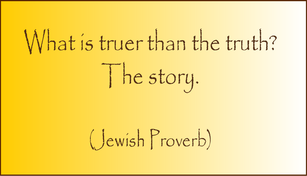African American female,
Single mother of two,
Highly educated,
Chief of cardiac surgery.
Shortcuts and stereotypes
If you are like most of us, you will have noticed that you had to actively shift gears with each new piece of information.
Our brains are highly evolved to make sense of the world as rapidly as possible. In order to do so, the brain uses shortcuts, including stereotypes, to fit new experiences into existing constructs.
Confirmation Bias
Unfortunately, we are rarely challenged to shift gears, because we tend to disregard information that does not fit with our existing world view. “Confirmation bias” is a well-known phenomenon that causes us to place a greater emphasis on information that confirms our existing beliefs, while ignoring or discounting anything that opposes those beliefs. Thus, the choices we make – with respect to everything from news outlets and social circles to the places we live and the composition of our Facebook feeds – strengthen our beliefs and eliminate or filter out contrary information.
We create a story that is reinforced with each retelling and with each new piece of evidence that confirms it. Ironically, once the story has grown strong enough, it is also strengthened by those few pieces of information that contradict it, as our brains work to defend the narrative. (For an article on the “backfire effect”, take a look at the “Tip of the Day” in my January 2016 newsletter.)
The Power of the Story
Litigators are trained to create a theme for their case, so that they can weave a convincing narrative for the judge or jury. We write reports to our clients, take depositions, and whittle down the facts to those that most succinctly tell our client’s story. Clients, too, are asked to repeatedly rehearse and refine their stories, from intake interviews to depositions, responses to written discovery, mediation, and trial.
Interestingly, research in the area of trauma debriefing seems to indicate that retelling a story may do more harm than good, by solidifying the narrative and associated emotions, and preventing the trauma victim from forming resilience.
While there is currently no such research in the context of litigation, I would not be surprised to find similar forces at work. Lawyers and mediators know that the longer a dispute drags out, the more entrenched the participants become in their positions. Parties become less able to identify their own underlying interests, and less able to understand or empathize with their “opponent”.
The Case for (Early) Mediation
I am a firm proponent of mediation whenever possible – the earlier, the better. It is generally accepted that early mediation can save parties time, money and emotional energy. But I also believe that it is beneficial on a much more basic psychological level.
When mediation occurs before the parties have rehearsed their narratives, there may still be room for more than one story. Parties are more open to having their perspectives challenged without growing defensive; they still have the ability to shift gears. Confirmation bias and the backfire effect can be minimized, thereby creating an opportunity to expand the narrative, to include multiple points of view, and to achieve sometimes unexpected possibilities for settlement.




